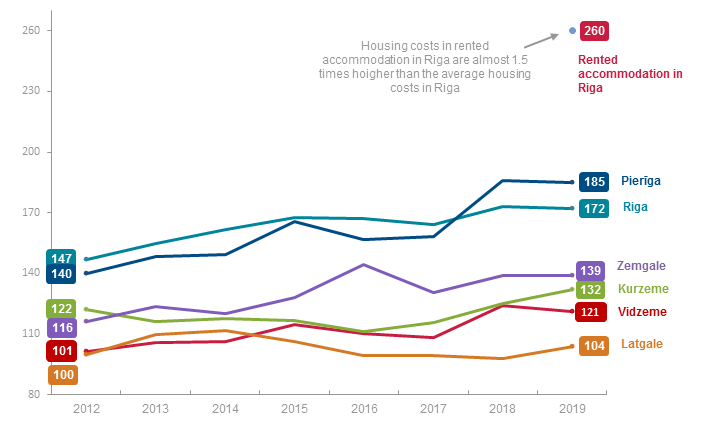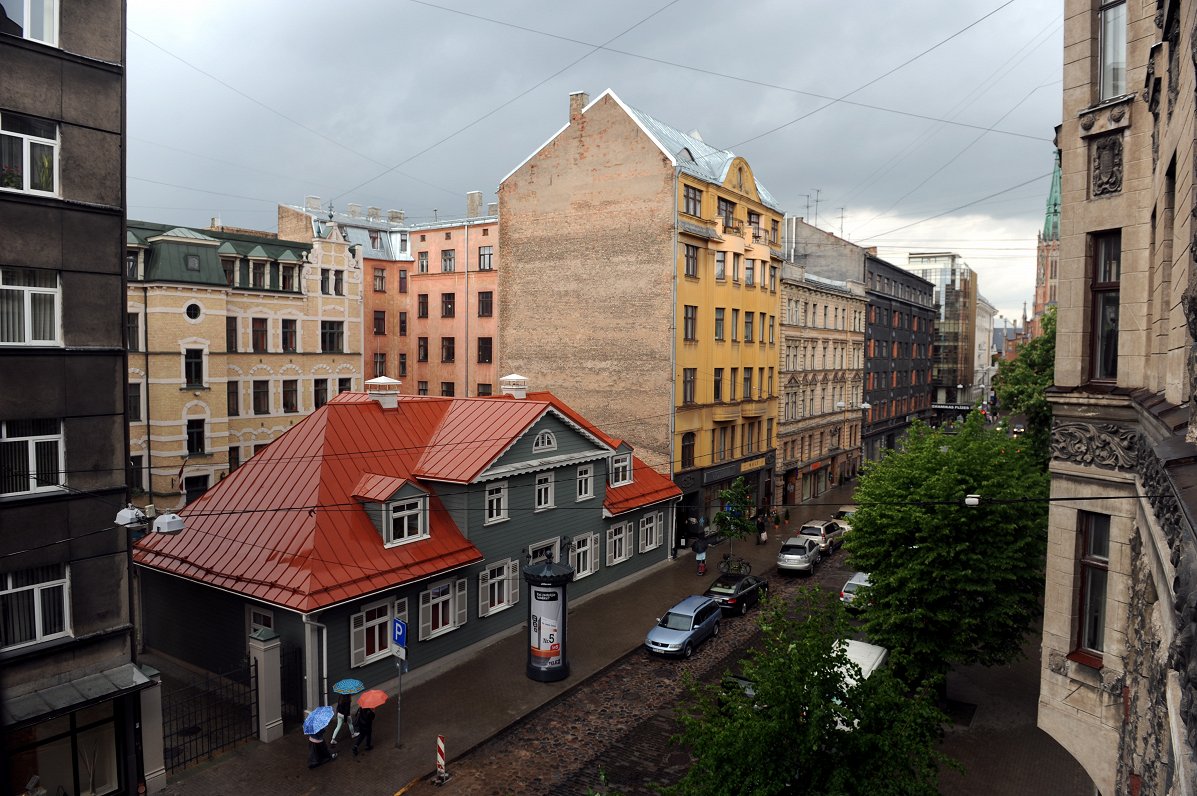Indeed the share of housing costs in the total household expenditure declined – last year households spent on average 12.2 % of their disposable income on housing costs as opposed to 13.4 % in 2018.
Monthly housing costs and share thereof in household disposable income in 2012–2019
|
Housing costs |
2012 |
2013 |
2014 |
2015 |
2016 |
2017 |
2018 |
2019 |
|
on average per household, EUR |
127 |
134 |
136 |
142 |
140 |
138 |
150 |
151 |
|
on average per household member, EUR |
53 |
55 |
57 |
59 |
58 |
59 |
65 |
67 |
|
share in household disposable income*, % |
17.2 |
17.3 |
16.1 |
15.2 |
14.0 |
13.5 |
13.4 |
12.2 |
Highest housing costs in Pierīga, lowest in Latgale
Households living in Pierīga - the districts immediately surrounding the capital city which can be considered its commuter belt - spent on average EUR 185 monthly on housing, while in Rīga itself the costs was actually lower at EUR 172.
In other regions these costs were lower still: EUR 139 in Zemgale, EUR 132 in Kurzeme, EUR 121 in Vidzeme and just EUR 104 in Latgale. Housing costs cover the average expenditure on housing during both the summer season and the winter, with its higher heating costs.
The national average costs in households renting accommodation (from individuals, local governments, etc.) constituted on average EUR 182 monthly, whereas in Riga it was considerably higher at EUR 260 monthly.

Single elderly spent one fifth of their income on housing
Housing costs imposed the heaviest financial burden on the single elderly population (aged 65 and over) – they spent 22.2 % of their disposable income on housing. Housing costs in households consisting of one adult with children constituted 19.4 % of their disposable income, whereas single people aged 16–64 spent 18.7 %.
In households consisting of a couple housing costs varied between 10.1 % among those having one child and 11.7 % among those with two children. Couples without children spent 11.0 % of their disposable income on housing.
Share of people admitting that housing costs impose a heavy burden has dropped to 22 %
An encouraging sign came with the fact that in 2019, 22.0 % of households admitted that housing costs impose a heavy burden, which is 6 percentage points less than in 2018 (28.2 %). At the same time, the share of households admitting that housing costs are somewhat a burden has risen (from 47.6 % in 2018 to 48.7 % in 2019), as has the share of those admitting that housing costs are not burden at all (from 24.4 % in 2018 to 29.3 % in 2019).
Last year, the largest share of households admitting that housing costs are a heavy burden was observed in Zemgale region – almost one third or 29.7 %, whereas the smallest share of such households was registered in Riga – 16.7 %.
Again, housing costs imposed a heavy burden to 39.0 % of single elderly people (aged 65 and over) and 33.0 % of single-parent families. In 2019, 8.6 % of households, due to financial difficulties, have been in arrears during the last 12 months.
Housing costs include heating, electricity, water supply and sewerage, waste disposal, other housing payments; costs of current repairs and regular maintenance; real estate tax (only for owners); rent (only for tenants); mortgage, dwelling (not property) insurance costs (if any), etc. expenses covered by household to provide extra comfort (e.g. payments for cable TV, telephone bills, etc.) are not included.






























